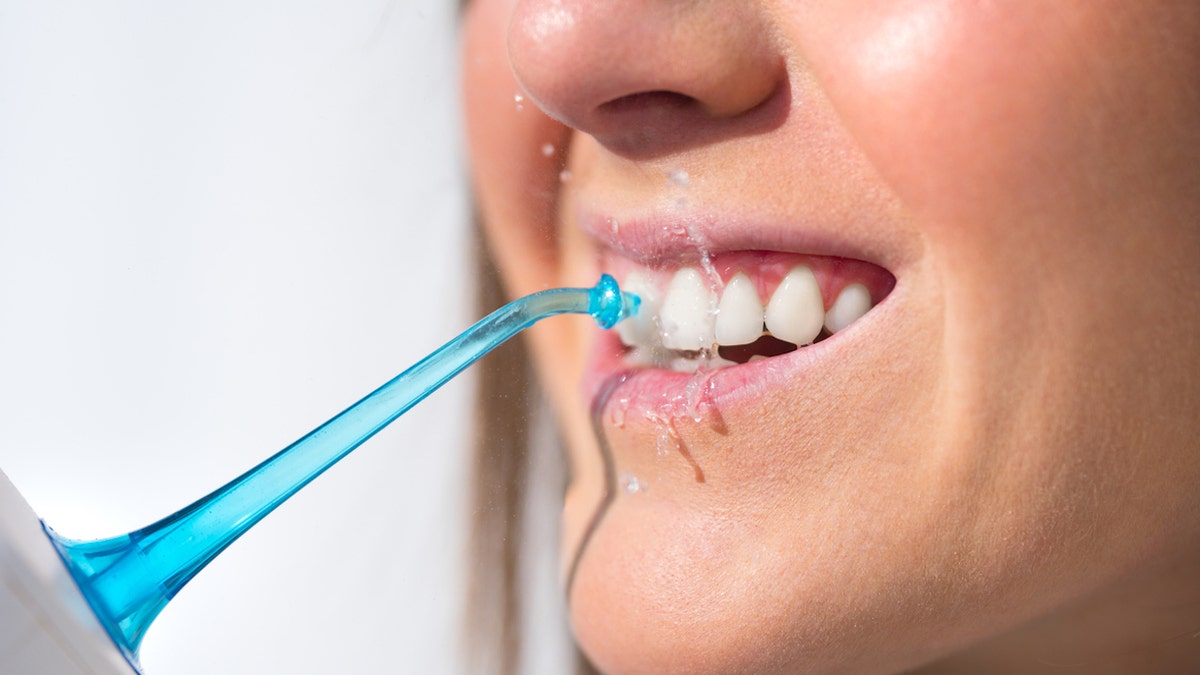Fox News Flash top headlines for May 1
Fox News Flash top headlines are here. Check out what's clicking on Foxnews.com.
Less plaque, fewer cavities and healthier gums may be the more obvious benefits of flossing your teeth — but did you know it could also lower your risk of heart disease?
"There are a lot of studies that have talked about — at least for periodontal disease — the connection between gum disease and heart health," said Sasha Ross, DMD, a periodontist for Cleveland Clinic.
Gum disease can cause high blood pressure and lead to inflammation and bacteria in the heart, research has shown, according to the Cleveland Clinic.
"There’s really a very strong association between the two, where patients who have periodontal disease are at a much greater risk for having heart disease, stroke or other issues like that," Dr. Ross also told Fox News Digital.
Some 43% of adults 30 and older have some type of gum disease, according to statistics from the Centers for Disease Control and Prevention (CDC).

Flossing could lower the risk of heart disease, a periodontist from Cleveland Clinic said of research. (iStock)
For adults 65 and older, that number rises to 70%.
Some people are more susceptible to complications even if they brush and floss every day, while others can do the bare minimum but have no issues at all, Dr. Ross pointed out.
DENTISTS WARN OF DANGEROUS DIY DENTAL HACKS GOING VIRAL ON TIKTOK
Those who have heart valve disease are at a higher risk, according to Dr. Marietta Ambrose, assistant professor of clinical medicine at the University of Pennsylvania’s Perelman School of Medicine.

For those who are unsure about the proper way to floss, one expert recommends using a water pick or special brushes designed to clean between the teeth. (iStock)
"The bacteria that live in your mouth when you have gum disease can cross into your bloodstream, enter the heart and directly infect the vulnerable heart valves," she said in a 2022 article on Penn Medicine’s website.
"That’s especially concerning in our patients who have artificial heart valves."
Repercussions of not flossing
People should brush their teeth at least twice a day and floss once a day, either before or after brushing, says the American Dental Association (ADA).
Some signs of flossing negligence include bleeding or swollen gums, plaque buildup, cavities, loose teeth, bad breath and gum recession, Dr. Ross said.
"I say it’s really good to floss once a day — ideally at night before you go to bed."
"I think a lot of people are never taught how to properly floss and what kind of floss to use, so at one of these visits we can work with you and show you how to do it," she said.
"Then just make it part of your daily routine. I say it’s really good to floss once a day, ideally at night before you go to bed."

In addition to regular brushing and flossing, everyone needs to visit a dentist regularly, say experts. (iStock)
For those who are unsure about the proper way to floss, Dr. Ross recommends using a water pick or special brushes designed to clean between the teeth.
Tips for proper flossing
For best results, Dr. Ross recommends flossing between each set of teeth 10 to 15 times in an up-and-down motion. You can start from anywhere in the mouth. For each tooth, use a new, clean section of floss.
Waxed and unwaxed floss are both effective for plaque removal, but waxed floss might be easier for those whose teeth are spaced tightly together, Dr. Ross told Fox News Digital.
CLICK HERE TO SIGN UP FOR OUR HEALTH NEWSLETTER
It likely doesn't matter whether you brush or floss first, but Dr. Ross said that one study suggests flossing first may achieve better plaque removal.
"Most people have never been shown how to floss," she said. "Make sure to ask your dentist, periodontist or hygienist to demonstrate and watch you floss."
CLICK HERE TO GET THE FOX NEWS APP
In addition to regular brushing and flossing, visit a dentist regularly and limit sugary foods and drinks to protect dental health, the ADA recommends.
To read more pieces in Fox News Digital's "Be Well" series, click here.











































